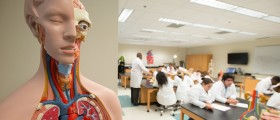
What is Information Processing Theory?
The title refers to a theory coming from a branch of psychology called cognitive development. It deals with the phenomenon of getting information, processing it and reacting to it, regarding our brain functions during this process. Basically, this theory is all about learning. We all learn by listening or perceiving information in different ways. Subsequently, we react to this information and process it in a specific way, learning it, and, thereby, responding to it. By learning more about how we actually learn, this theory can help us in helping others, like children with learning difficulties.
Interestingly, our brains function similarly to computers, which are actually not so strange since we invented them. Namely, upon receiving a piece of information, we analyze it before storing it. Thus, the information needs to pass certain tests, benchmarks of sorts, before being deemed as plausible and stored. This, however, takes place enormously fast, too quick for us to even be aware of it. Again, if we compare ourselves to computers, we would come to a conclusion that our sensory organs and our pieces of hardware, receive various information, while our brain is the software, analyzing, storing and using useful data. Therefore, if we tweak our “software” we can achieve better results in data storage, improving the overall performance of our “operating system”.
Structure of the Information ProcessingTheory
There are several models the information processing theory consists of. First of all, there is the store model, which collects information, analyzes it, and decides whether it should be processed in any of the following models, being recorded either temporarily or permanently, depending on the value of the data received.
We can store data in our short-term memory model, if the information is not needed for any future occasions, but, rather, just for the specific time being. After we use the needed information, it gets deleted or, simply, forgotten.
Our long term memory model is reserved for information which is kept permanently due to its possible importance in future situations when it can be accessed and used.
All in all, the information processing theory considers any act of reading, searching, saving or retrieving memory a process of thinking. Once we encounter a problem, we read our previously stored knowledge, which consists of countless number of information, and try to find possible solutions in our memory. Once we deal with a specific problem, we modify our memory, adding the solution to it, making us learn more and being able to solve similar problems easier every following time. Thus, each time we learn, we actually modify what we already know, alter our previously stored information, thereby becoming more capable of dealing with future problems. However, this is just a small part of the actual depth of this theory. Nevertheless, if you were interested, you may modify your memory by searching additional information about it.

















Your thoughts on this
Loading...